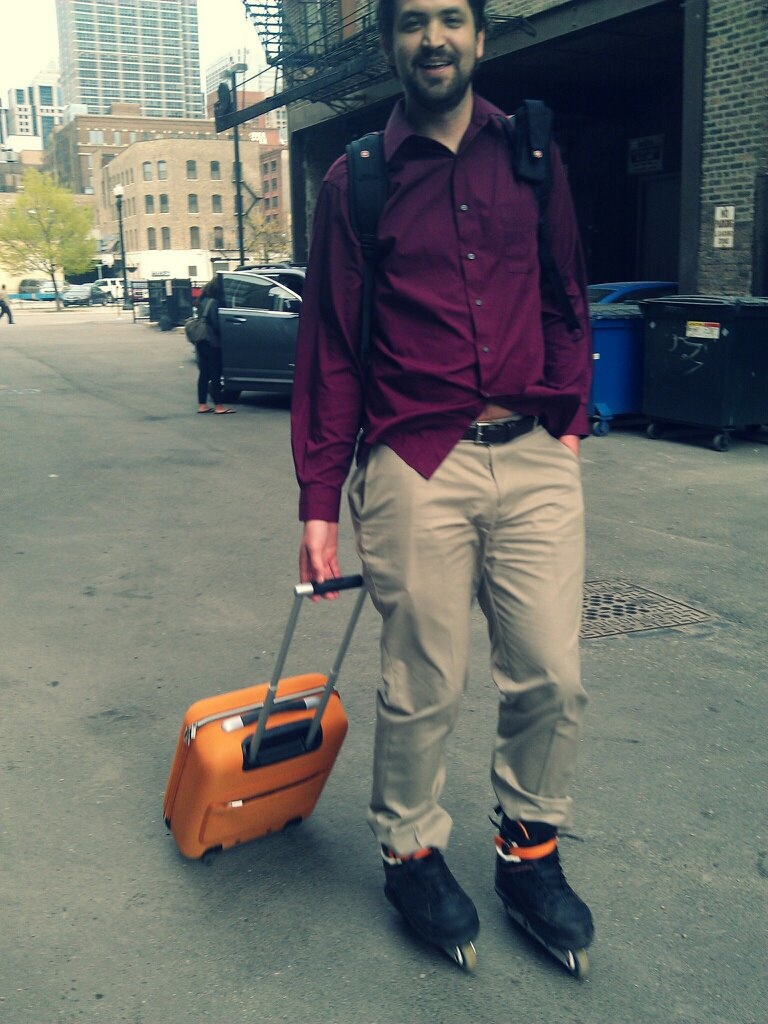

It’s safe to assume that the majority of rollerbladers skating today have grown up in a culture that self-identifies as an island of misfit toys. Some of us remember the days of Gap sponsorships, the X-Games and Brink, but anyone who has been skating less than 10 years is not familiar with regularly televised events or casual conversations in the halls about “skating” without having to clarify that not only is one not referring to skateboarding, but also that, yes, people do still rollerblade (or worse, the dreaded “you mean like racing?”). Our role as outcasts has become one of our defining features as a group.
But it hasn’t been all punk rock and “fuck the mainstream” for the past decade. One would be hard-pressed to find a published blade magazine from the last 10 years that didn’t somewhere make an appeal for our subculture to try and find a place in the culture at large. This is our paradox and identity crisis. Rollerblading culture is strange and expansive, yet at the same time closed-off and seemingly homogenous to outsiders. We have the WRS, Chris Haffey on Nitro Circus, and Taig Kris doing swan dives (I am not trying to say that all of these are equal with regard to respectability, just that all of them are attempts to try to show the sport to the culture at large), and we also have The Shock Video which, regardless of what one thinks of it, is at the very least a fuck you to anyone who wants rollerblading to be embraced by anything close to mainstream culture.
If rollerblading does grow, and I hope it does, it will inevitably divide. In 2007 I began to write an editorial to rollerbladers asking them to celebrate being a part of a culture so closely-knit that we all identified as one (“started” because at the time I wasn’t really in the habit of finishing things that weren’t kegs). Not that we weren’t individuals, just that our community was small enough to allow us to put a face with a name, or a stranger on a couch, regardless of what part of the world one was in. No matter our individual differences it was always us against them. As we grow it won’t be. Our small community will branch out into a larger web of cliques and crews with different ideas of what rollerblading is and should be. This isn’t a bad thing. It’s just something that we to need to be ready for. If we become big enough to quickly explain who we are to an outsider, the explanation we give will become vague. Not quite a lie, but a description void of meaning.
I’ll be 56 in June, rolling since ’96 ( late bloomer) and I rock blading gear at work and I enjoy explaining my tees to people, like “No, I’m not a communist” (Ground Control) to whose face is that (Farm) to how do you say that (Xsjado). Then I whip out my iPhone and show them a little edit of me at the skatepark and they are quite impressed. I hope blading doesn’t die, at least not before I do, but I really don’t want it to be mainstream either. I’m still surprised at the number of blading companies being supported by this non-mainstream activity. Be proud of what you do.